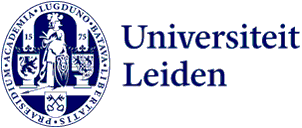9 search results for “environmental sustainability” in the Staff website
-
 Anna Notsu
Anna NotsuFaculteit der Sociale Wetenschappen
a.notsu@fsw.leidenuniv.nl | +31 6 2825 1683
-
‘Poorer people often bear the brunt of sustainability initiatives’
The effects of sustainability projects on poorer, marginalised people should be considered at a much earlier stage. This is the opinion of Marja Spierenburg, Professor of Anthropology of Sustainable Development and Livelihood, who will give her inaugural lecture on 25 February.
-
How the eating habits of a limited group of Americans determine sustainability
Masses of hamburgers, steaks, cheese and a lot of eggs: Americans love their animal products. But researcher Oliver Taherzadeh discovered that only a relatively small group of high-volume consumers need to modify their diet to achieve an enormous environmental gain.
-
How polluting buildings and machinery make rich countries ever richer
Rich countries are getting richer because of environmentally polluting (construction) investments from the past, largely at the expense of poor countries. This was shown by long-term economic and environmental data. 'The gap between poor and rich countries is widening.' Scientists from the Leiden Institute…
-
‘We are drowning in dossiers of which we have long known they will play a role’
The new government needs to look further ahead, says environmental scientist Rutger Hoekstra. ‘We keep pushing forward big dossiers like demographic ageing, climate and migration. Even though we know they play a big role in our future.’ Hoekstra therefore hopes that the new coalition agreement will…
-
Getting people on board with the energy transition: ‘Times of crisis can help’
The gas prices now exceed 300 euros per megawatt hour – a record. The transition from fossil (natural gas, coal, oil) to renewable energy is needed and soon. But how do you get a society (and its citizens) to switch to sustainable energy?
-
SAILS Lunch Time Seminar Sustainability
Lecture
-
Changing our diet would help absorb global food shocks, such as during the Russia-Ukraine conflict
A plant-based diet could improve the resilience of our food system. Moving to such a diet in the European Union (EU) and United Kingdom (UK) alone could replace almost all the production losses from Russia and Ukraine. That’s what an international team of researchers conclude in Nature Food. Leiden…
-
Visit by Members of Parliament highlights interdisciplinary research and collaboration
High-quality education, research involving multiple faculties, collaboration between universities and central government funding to make all this possible: these were the topics covered in a working visit of the Standing Committee for Education, Culture and Science (OCW) to the Association of Universities…
